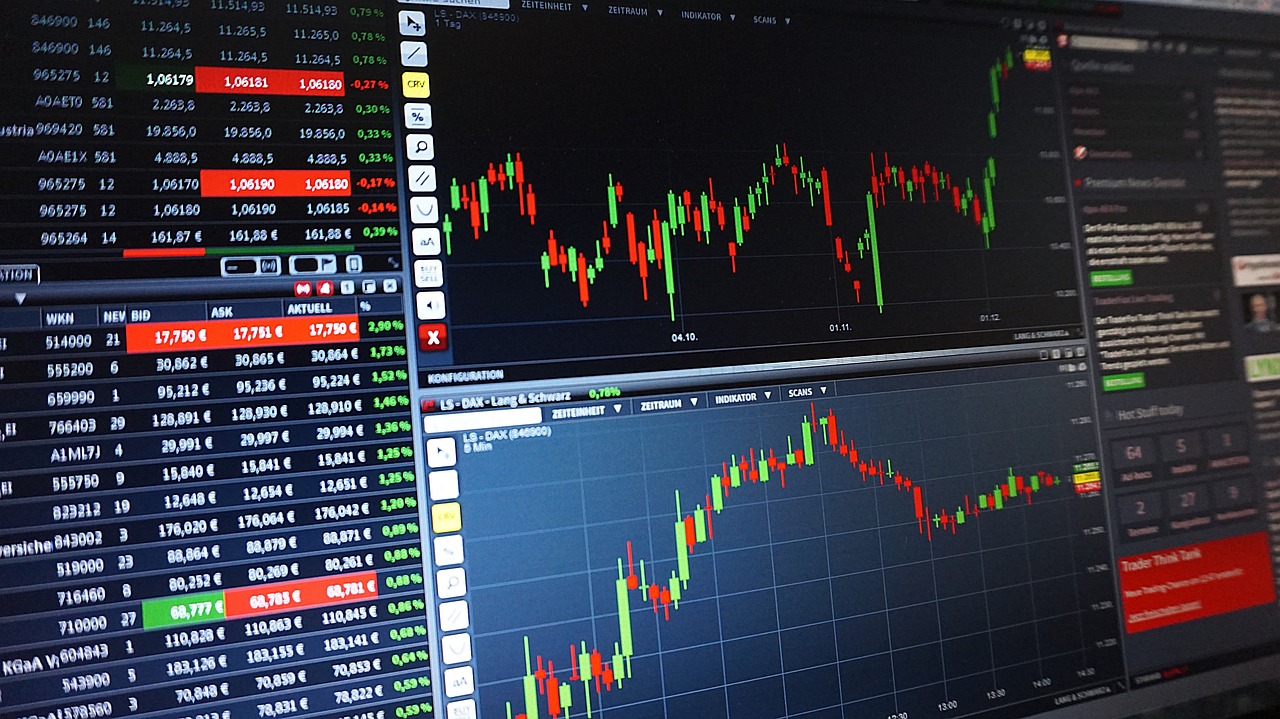It’s no secret that the stock trading industry is undergoing a major overhaul. With more tech-savvy investors entering the market, traditional brokers are being pushed out of the equation. But how exactly will this change affect investors and traders? In this article, we’ll take a look at the major changes that are happening in US stock trading and how it could impact your portfolio. From commission-free brokers to new regulations and beyond, get ready for a seismic shift in the way you trade stocks.
The current state of stock trading in the US
The current state of stock trading in the US is in flux. A major overhaul is looming as brokers brace for impact. The changes could be far-reaching, and may upend the way that stocks are traded in this country.
Currently, most stock trades are executed through a process called “order flow.” This system relies on broker-dealers to route orders to the exchanges where they can be filled. But the recent rise of high-frequency trading (HFT) has created new challenges for this system.
HFT firms use sophisticated algorithms to trade stocks at lightning speeds. They have become increasingly prevalent in recent years, and now account for a significant portion of all stock trades.
This has led to concerns that the current system is not equipped to handle HFT activity. There are worries that HFT firms could manipulate prices or take advantage of slow-moving investors.
In response to these concerns, the US Securities and Exchange Commission (SEC) is considering a number of changes to the way that stocks are traded. One proposal would require broker-dealers to send orders directly to exchanges, rather than routing them through other broker-dealers.
This would eliminate the need for order flow, and could make it more difficult for HFT firms to trade stocks effectively. The SEC is also considering other changes, such as banning “flash orders” – which give HFT firms an early look at buy and sell orders – and implementing new rules around co-
The proposed changes to stock trading
The New York Stock Exchange and Nasdaq are both proposing major changes to the way stocks are traded. The proposed changes would impact the way brokers trade stocks on behalf of their clients.
The New York Stock Exchange is proposing to change the way it prices stocks. Currently, the exchange uses a system called “maker-taker” pricing. Under this system, brokers who add liquidity to the market by making trades are given a rebate, while those who take liquidity away from the market by making trades are charged a fee. The NYSE’s proposal would reverse this system, so that makers would be charged a fee and takers would receive a rebate.
The Nasdaq is also proposing changes to the way stocks are traded. Currently, Nasdaq uses a system called “trade-at” pricing. This system allows brokers to trade stock on behalf of their clients at any price they choose, as long as that price is within the National Best Bid and Offer (NBBO). The Nasdaq’s proposal would change this system so that brokers could only trade stock on behalf of their clients at prices that are better than or equal to the NBBO.
These proposed changes could have major implications for how stocks are traded in the United States. Brokers may need to adjust their trading strategies in order to account for the new rules. Some believe that these changes could lead to more efficient markets, while others worry that they could make it harder for small investors to get good prices for their shares.
How the changes will impact brokers and investors
The new rules will have a significant impact on brokers and investors alike. For brokers, the changes mean that they will need to adjust their strategies for interacting with clients and executing trades. In particular, they will need to be more careful about order timing and price levels. For investors, the changes may result in increased costs and/or reduced liquidity.
What the critics are saying about the proposed changes
The proposed changes to the way stock trading is conducted in the US have come under fire from some quarters, with critics saying that they will lead to less transparency and more market manipulation.
Others have argue that the proposed changes, which include moving away from traditional exchanges and towards so-called dark pools, will simply benefit the large brokers and hurt small investors.
There is no doubt that the proposed changes would have a significant impact on stock trading in the US, and it remains to be seen whether they will ultimately be approved by the regulator.
The pros and cons of the proposed changes
The proposed changes to the stock trading system in the United States have both pros and cons. On the plus side, the changes would make it easier for investors to buy and sell stocks and could lead to more competition among brokers. On the downside, the changes could increase costs for some investors and make it more difficult for them to trade certain types of stocks.
Some of the key pros of the proposed changes include:
-Making it easier for investors to buy and sell stocks: The proposed changes would create a “unified limit order book,” which would allow investors to see all available offers to buy or sell a particular stock at a given price. This would make it easier for investors to find willing buyers or sellers, and could lead to lower prices overall.
-Increasing competition among brokers: The unified limit order book would also make it easier for new brokerages to enter the market, since they wouldn’t need to build their own proprietary trading systems. This increased competition could lead to lower fees and commissions for investors.
-Allowing odd-lot trades: Currently, many brokers don’t allow so-called “odd-lot” trades (orders for less than 100 shares), which can be disadvantageous for small investors. The proposed changes would allow odd-lot trades, giving small investors more flexibility.
Some of the key cons of the proposed changes include:
-Increasing costs for some investors: While the unified limit order book could lead to lower
Conclusion
In conclusion, the proposed changes to stock trading rules in the US are set to shake up the industry. Brokers must now be prepared for major consequences due to these changes and adapt their strategies accordingly. This could lead to a more efficient market with fewer discrepancies between individual investor trades and institutional ones, which could benefit both traders and investors alike. Nevertheless, only time will tell what impact these changes have on stock trading as a whole.











